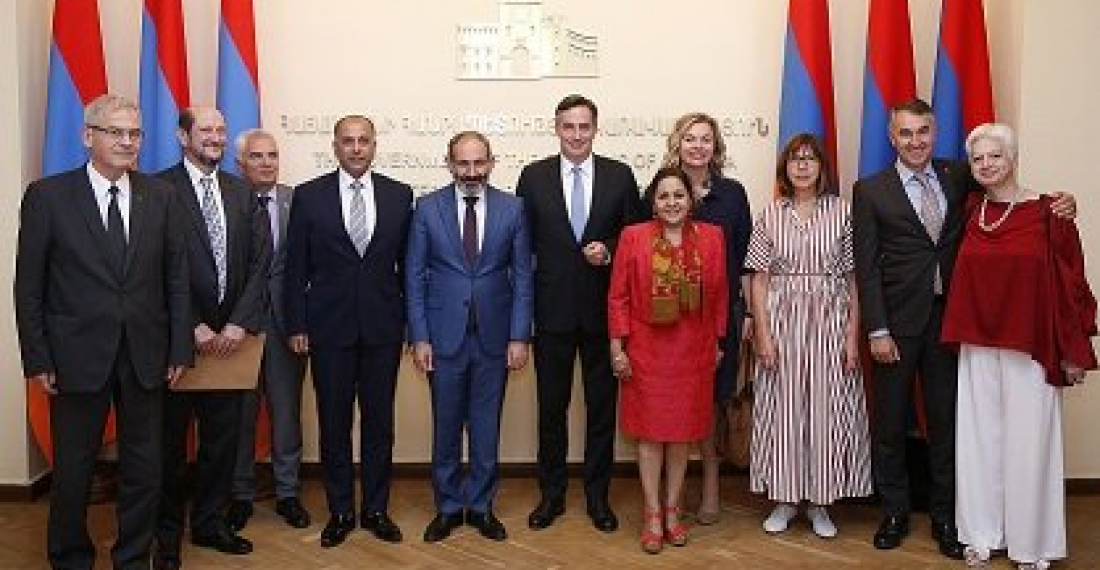An official delegation of the European Parliament, including several senior MEPs, on Monday met in Yerevan with Armenian prime Minister Nikol Pashinyan. The delegation, led by the German MEP and Chairman of the European parliament foreign Affairs Committee, David McAllister, re-affirmed the support of the European Union to ongoing reforms in the country and promised to stand by Armenia as it pursues further democratisation measures.
The press service of the Armenian Prime Minister said that Nikol Pashinyan told the visiting MEPs that one of the priorities of the Armenian government is the continuous development of democratic institutions. In that context, he presented the reforms and programs envisaged in the field of anti-corruption, human rights protection, the fight against economic monopolies and other spheres. The prime minister also commented on the possibility of early parliamentary elections and amendments to the Electoral Code, stressing that their purpose will be to ensure free, fair and democratic elections."The goal of our steps is real change in the country, " said Nikol Pashinyan.
Speaking to the Armenian media later, David McAllister said that both parties to the Karabakh conflict need to come to the table and negotiate. He called for the ceasefire to be respected, and for the confrontational rhetoric to stop.
"We need to find a solution to the Karabakh conflict. I said it before and I will say it again - there is no military solution to this conflict. The status quo is unacceptable for the populations suffering on both sides," he said.
source: commonspace.eu with the press service of the prime minister of Armenia
photo: Members of the European Parliament with Armenian prime minister Nikol Pashinyan, in Yerevan on 18 June 2018 (picture courtesy of the press service of the prime minister of Armenia)







